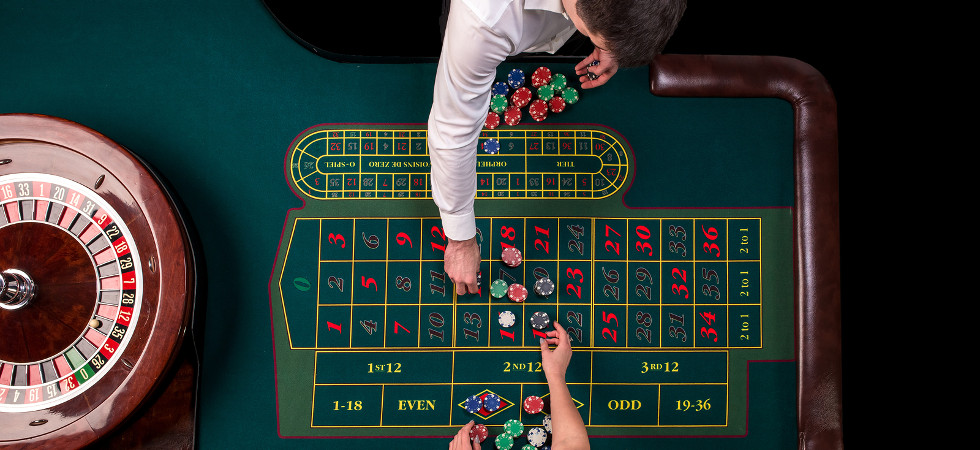
The coronavirus pandemic has significantly altered numerous aspects of life around the globe, and the gambling industry is no different. As casinos shuttered their doors and social distancing measures came into effect, many players turned to online platforms to satisfy their craving for entertainment. Among the various forms of gambling, slot gambling has emerged a popular choice for numerous players, demonstrating the flexibility and resilience of this pastime in the face of extraordinary challenges.
With restrictions on in-person gatherings and concerns about health and safety, the shift towards digital gaming has intensified. Players who formerly patronized physical casinos discovered themselves exploring the wide array of online slot games accessible at their disposal. This shift not only changed the way people interact with slot machines but also underscored evolving trends in game design, player preferences, and the overall gambling experience during a time when conventional venues were compelled to adapt or close.
Shift in Player Demographics
The coronavirus pandemic has substantially changed the landscape of slot gambling, notably in terms of gambler profiles. With the shutdown of physical casinos during shutdowns, many traditional players transitioned to digital platforms. This transition has not only enhanced the overall number of participants but has also drawn in a wide range of fresh participants, spanning different age groups and areas. Younger players, who may have previously been reluctant to participate with gambling, are now more likely to explore online gaming experiences from the comfort of their own spaces.
Moreover, the rise in home gaming has led to a boost in female participation in slot gambling. Traditionally, gambling has been predominantly male, but the accessibility and convenience of online slots have drawn in a large number of female players. This demographic shift suggests a evolving perception of gambling, where it is more and more seen as a recreational activity that can be appreciated by everyone, regardless of gender. As platforms keep to evolve, they are adapting more to this varied audience, offering varied games that attract to a broader range of tastes.
In conclusion, the elderly population has also shown an uptick in online slot gambling. With many senior citizens seeking leisure options during quarantine, online casinos have become an appealing choice. This demographic is often more comfortable with digital tools than before, leading to an increase in participation among senior players. As operators customize their services to meet the needs of this growing segment, it becomes evident that the pandemic has not only altered demographics but also changed the way slot gambling is viewed and played across different age groups.
Surge in Online Slot Gambling
The pandemic caused by COVID-19 has dramatically changed the field of entertainment, leading to a notable increase in slot gambling online. With land-based casinos shutting down or operating under strict regulations, many players shifted to virtual platforms as their main method of gaming. This transition was driven by the desire for secure and accessible options, allowing enthusiasts to enjoy their beloved hobby from the comfort of their homes. As a result, the online gambling industry experienced remarkable expansion during this period.
Gaming operators seized the moment by upgrading their online offerings. Cutting-edge slot games with captivating themes, striking graphics, and generous bonus features flooded the market, drawing in both novice gamblers and players coming back after a break. Promotions and bonuses became more competitive casinos tried to pull in players away from brick-and-mortar establishments. This spike in online slot gambling both broadened the player base but also encouraged the advancement of innovative technologies, boosting user experience and engagement. slot bet 200
Moreover, the rise of mobile gaming played a key role in the online slot gambling surge. As smartphones became the primary device for many, players found it simpler to access their favorite games at any location at any time. The simplicity of mobile apps and responsive websites allowed for seamless gameplay, allowing for quick betting during idle moments. This change has forever transformed player habits, suggesting a persistent pattern in favor of online slot gambling that may outlast the COVID crisis.
Shifts in Player Engagement
As restrictions and social distancing measures were enacted around the globe, casino slot games experienced notable shifts in behavior. A lot of players who traditionally visited brick-and-mortar casinos turned to virtual casinos, attracted by convenience and the allure of virtual gaming environments. This change not only widened the audience of online players but also boosted the overall time invested on gaming sites. The community elements of slot gambling, once only available in physical locations, found new opportunities through virtual forums and interactive dealers, allowing players to mimic some of the interactive moments of traditional casinos from the convenience of their homes.
The financial consequences of COVID-19 also shaped gambling habits. With a lot of people facing monetary challenges, some players decided on more prudent spending, while others desired the excitement of potential winnings as a form of distraction. This contrast created a market where less experienced players emerged, drawn by bonuses and special offers offered by online casinos eager to engage new customers. Slots that featured progressive jackpots and captivating storylines became increasingly favored, as they attracted this wider audience seeking diversion and the chance of monetary assistance.
COVID-19 has also initiated changes in player preferences and tech engagement. Many gamblers began to explore games that offered new functionality and immersive experiences, such as gamification and engaging features. The rise of gaming on mobile devices made slot gambling more reachable than ever, allowing players to play with their favorite games at any time and from anywhere. As a result, the transformation of gaming behavior reflects not only a reaction to the pandemic but also a long-term shift that may further influence the future of casino gameplay.